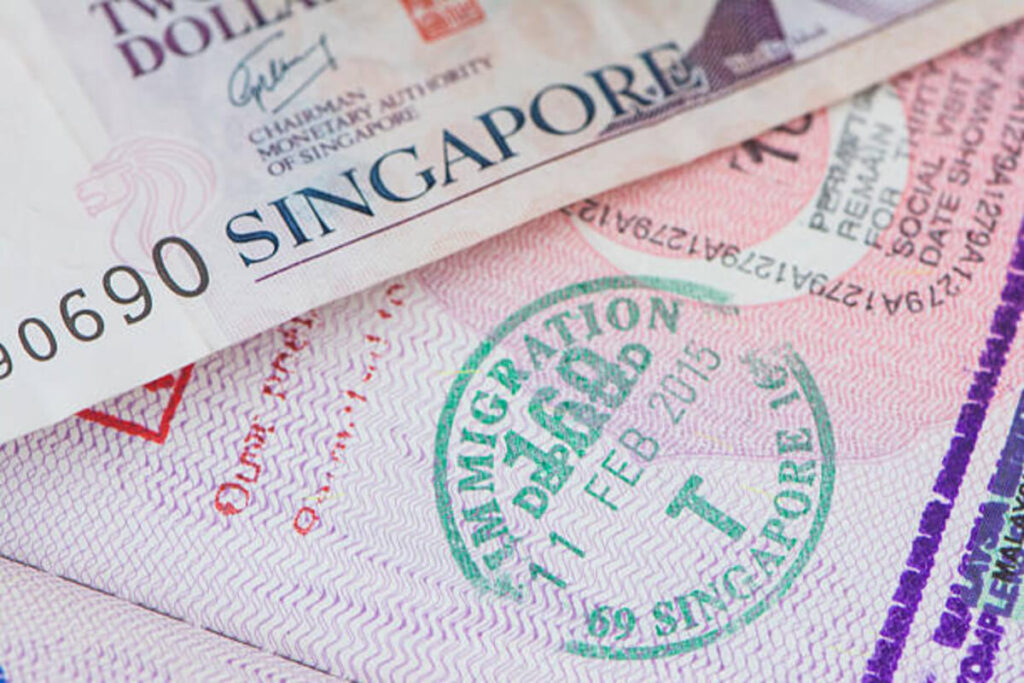When seeking permanent residency in a foreign country, knowing which countries offer the best opportunities is key. For foreign workers, the right country can provide job security, social benefits, and a pathway to citizenship. Whether you’re a skilled professional, entrepreneur, or investor, several countries offer attractive permanent residency options for those willing to contribute to their economy.
Advertisement
In this guide, I’ll walk you through the best countries offering permanent residency to foreign workers, explain their specific requirements, and help you understand how to improve your chances of securing a PR status. Let’s dive into the top destinations for foreign workers looking for long-term career and residency opportunities.
What is Permanent Residency and Why It Matters for Foreign Workers
Permanent residency (PR) allows foreign nationals to live and work indefinitely in a country, providing them with a secure status that offers benefits not available to temporary residents. For foreign workers, PR status provides stability in their professional and personal lives, offering access to better job opportunities, healthcare, and social services.

It also serves as a stepping stone to citizenship in many countries. With PR, workers don’t have to worry about renewals or restrictions tied to work visas, making it a valuable asset for long-term career planning and life choices in their host country.
- What is Permanent Residency: A legal status that allows foreign nationals to live and work indefinitely in a country.
- Why it Matters: Permanent residency offers job security, social benefits, and a pathway to citizenship.
Read: Top 10 Fully Funded USA Job Scholarships That Pay for Your Education and Employment
Criteria for Gaining Permanent Residency as a Foreign Worker
To qualify for permanent residency, foreign workers generally need to meet specific criteria set by the country’s immigration laws. Most countries prioritize skilled workers, and applicants often need to demonstrate their education, professional experience, and language skills. Having a valid job offer from a local employer can significantly improve an applicant’s chances.
In some countries, applicants may need to pass language proficiency tests or meet minimum investment or business requirements. Some countries also prioritize individuals willing to contribute economically, whether through investment, entrepreneurship, or filling labour gaps in critical sectors like technology or healthcare.
- Work Experience: Countries may require specific years of work experience in certain industries or sectors.
- Skills and Education: Higher levels of education and specific skills may increase eligibility.
- Job Offer: Some countries require a valid job offer from a local employer.
- Language Proficiency: Many countries require basic proficiency in the national language.
- Investment or Business: In some cases, a foreign worker can qualify for PR by starting a business or investing in the country.
Top Countries Offering Permanent Residency to Foreign Workers
Several countries around the world offer permanent residency to foreign workers, creating opportunities for skilled individuals to build stable, long-term lives abroad. Countries like Canada, Australia, and New Zealand use points-based systems to attract professionals in high-demand sectors. Germany and Sweden offer strong pathways for workers in engineering, healthcare, and IT. Portugal and the UAE provide flexible options through employment or investment.

These nations value skilled labour and provide access to social benefits, job security, and even a path to citizenship. For foreign workers seeking better opportunities, these top countries offer clear, reliable routes to permanent residency and long-term success.
Canada
- Why It’s Great: Canada’s Express Entry system is a straightforward pathway for skilled foreign workers.
- How to Qualify: Points-based system considering age, education, work experience, and language skills.
- Permanent Residency Process: After obtaining a job offer or qualifying under Express Entry, workers can apply for PR.
Australia
- Why It’s Great: Australia offers a clear and structured pathway for skilled workers.
- How to Qualify: Points-based immigration system, with emphasis on skills, work experience, and English proficiency.
- Permanent Residency Process: Through skilled migration, workers can apply for PR after 2-4 years.
New Zealand
- Why It’s Great: New Zealand’s Skilled Migrant Category allows workers to transition to PR smoothly.
- How to Qualify: Points are awarded based on skills, work experience, and a job offer.
- Permanent Residency Process: Apply for PR after meeting work requirements or after 2-3 years of residence.
Germany
- Why It’s Great: Germany has a demand for skilled labour, especially in labour and engineering the ng fields.
- How to Qualify: A job offer from a German employer is usually required.
- Permanent Residency Process: After 33 months (or 21 months if you speak German), workers can apply for permanent residency.
Singapore
- Why It’s Great: Singapore offers fast-track residency to skilled foreign professionals.
- How to Qualify: A valid job in Singapore is required, especially in sectors like IT, finance, and healthcare.
- Permanent Residency Process: After working for 2 years on an Employment Pass, workers can apply for PR.
Portugal
- Why It’s Great: Portugal offers a relatively straightforward residency process and attracts foreign talent.
- How to Qualify: Workers in certain professions (e.g., tech, engineering) are favoured.
- Permanenfavouredency Process: After 5 years of legal residence, workers can apply for PR.
United Arab Emirates (UAE)
- Why It’s Great: The UAE has introduced new policies offering permanent residency to foreign workers in select industries.
- How to Qualify: Skilled professionals, investors, and entrepreneurs can apply.
- Permanent Residency Process: After meeting the criteria, apply thee r a long-term visa.
Sweden
- Why It’s Great: Sweden values skilled professionals and offers clear pathways to PR.
- How to Qualify: A job offer from a Swedish employer is necessary.
- Permanent Residency Process: After 2-5 years of residence, workers can apply for PR.
Read: Top 5 USA Visas Types You Can Get Without Needing Employer Sponsorship
How to Improve Your Chances of Gaining Permanent Residency
To increase your chances of obtaining permanent residency, focus on improving key areas such as skills, work experience, and language proficiency. Many countries favour applicants with job offers, so securing employment with a local employer can significantly boost your application. Learning the country’s official language or enhancing your proficiency can also improve your eligibility, as many countries prioritize language skills.
Additionally, building a professional network within the country and staying updated on immigration policies can help you navigate the process more effectively. These steps will make you a more competitive candidate for permanent residency.
- Learn the Local Language: Some countries prioritize applicants with language skills.
- Get a Job Offer: Having a job lined up can significantly improve your chances.
- Build a Strong Professional Network: Networking with locals and companies can help you land a job and show your commitment to the country.
- Stay Informed: Immigration rules can change; staying up to date with the latest policies and requirements will give you an edge.
Benefits of Having Permanent Residency
Permanent residency offers significant advantages for foreign workers. It provides job security, as you no longer need to worry about visa renewals or work permits. PR also grants access to essential social benefits, including healthcare, education, and public services. It can open doors to citizenship in many countries after meeting residency requirements.
Additionally, PR allows for a stable and predictable living situation, offering long-term career opportunities and a better quality of life. Permanent residency is a great option for workers looking to establish roots in a country and enjoy the benefits of being a long-term resident.
- Job Security: You can work for any employer without worrying about work permits.
- Social Benefits: Access to healthcare, education, and social security benefits in most countries.
- Pathway to Citizenship: In many countries, PR can lead to citizenship after a few years.
- Higher Quality of Life: Permanent residents often enjoy better housing, healthcare, and work-life balance.
Things to Keep in Mind Before Applying
Before applying for permanent residency, it’s important to consider several factors. First, assess the country’s economic stability and job market to ensure there are ample opportunities in your field. Immigration policies can change, so it’s vital to stay informed about the specific residency requirements for foreign workers.

Consider the cultural fit as well; moving to a new country means adapting to different lifestyles and social norms. Take time to research and ensure that the country aligns with your long-term career and personal goals. Carefully planning your move will increase your chances of success in gaining PR.
- Country’s Economic Stability: Consider the country’s job market, growth prospects, and political climate.
- Immigration Policies: Ensure that you meet the requirements for PR and that the country’s immigration policies align with your goals.
- Cultural Fit: Think about whether the country’s lifestyle and culture are a good match for you and your family.
The best countries offering permanent residency to foreign workers provide stable job opportunities, social benefits, and pathways to citizenship. Countries like Canada, Australia, and Germany offer clear, structured immigration systems for skilled professionals. Requirements typically include work experience, education, and sometimes language proficiency.
Foreign workers can improve their chances of obtaining permanent residency by securing a job offer, learning the local language, and staying updated on immigration policies. Permanent residency offers long-term job security, access to healthcare, and a better quality of life, making these countries attractive options for foreign workers seeking stability and growth.


